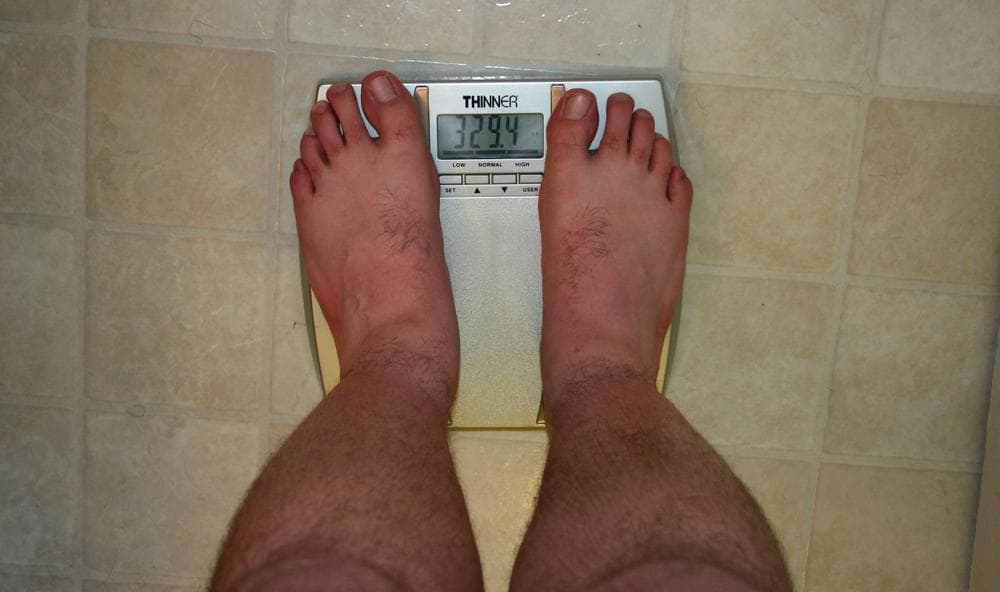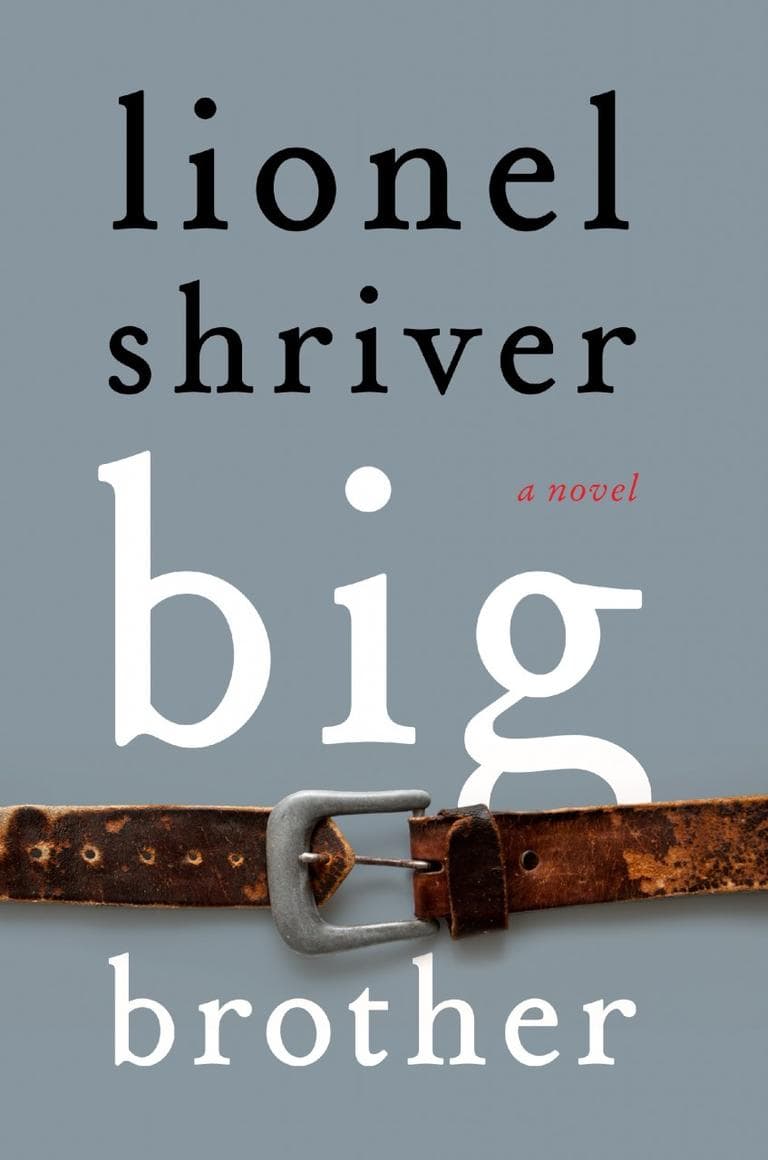Advertisement
In 'Big Brother' Lionel Shriver Explores Obesity
Resume
Author Lionel Shriver has taken on hot-button topics before. Her acclaimed 2011 novel "We Need to Talk About Kevin" looked at the aftermath of a high school massacre, and her 2010 book "So Much for That" critiqued the U.S. health care system.

In her new novel "Big Brother," the topic is morbid obesity.
An Iowan couple, Pandora and Fletcher have their lives upended when Pandora's 400-pound brother Edison comes to live with them.
Shriver mines some of her own family history for the novel.
She wrote an op-ed piece for the Guardian in 2009 about her morbidly obese big brother: "Lionel Shriver: My brother is eating himself to death."
Her brother died days after she wrote the column.
"If it were just my family's problem, I don't know that I would necessarily have made a novel, but in that it's also a larger social problem, I thought it was worth writing about," Shriver told Here & Now.
- New York Times: Overweight? Maybe You Really Can Blame Your Genes
- Science: Obesity Gene Linked to Hunger Hormone
Book Excerpt: 'Big Brother'
By Lionel Shriver
I have to wonder whether any of the true highlights of my fortysome years have had to do with food. I don’t mean celebratory dinners, good fellowship; I mean salivation, mastication, and peristalsis. Oddly, for something I do every day, I can’t remember many meals in detail, while it is far easier for me to call up favorite movies, faithful friendships, graduations. It follows, then, that film, affinity, and education are more important to me than stuffing my face. Well done, me, you say. But were I honestly to total the time I have lavished on menu planning, grocery shopping, prep and cooking, table setting, and kitchen cleanup for meal upon meal, food, one way or another, has dwarfed my fondness for Places in the Heart to an incidental footnote; ditto my fondness for any human being, even those whom I profess to love. I have spent less time thinking about my husband than thinking about lunch. Throw in the time I have also spent ruing indulgence in lemon meringue pies, vowing to skip breakfast tomorrow, and opening the refrigerator/stopping myself from dispatching the leftover pumpkin custard/then shutting it firmly again, and I seem to have concerned myself with little else but food.
So why, if, by inference, eating has been so embarrassingly central for me, can I not remember an eidetic sequence of stellar meals?
Like most people, I recall childhood favorites most vividly, and like most kids I liked plain things: toast, baking-powder biscuits, saltines. My palate broadened in adulthood, but my character did not. I am white rice. I have always existed to set off more exciting fare. I was a foil as a girl. I am a foil now.
I doubt this mitigates my discomfiture much, but I have some small excuse for having overemphasized the mechanical matter of sustenance. For eleven years, I ran a catering business. You would think, then, that I could at least recall individual victories at Breadbasket, Inc. Well, not exactly. Aside from academics at the university, who are more adventurous, Iowans are conservative eaters, and I can certainly summon a monotonous assembly line of carrot cake, lasagna, and sour-cream cornbread. But the only dishes that I recollect in high relief are the disasters—the Indian rosewater pudding thickened with rice flour that turned into a stringy, viscous vat suitable for affixing wallpaper. The rest—the salmon steaks rolled around somethingorother, the stir-fries of thisandthat with an accent of whathaveyou—it’s all a blur.
Patience; I am rounding on something. I propose: food is by nature elusive. More concept than substance, food is the idea of satisfaction, far more powerful than satisfaction itself, which is why diet can exert the sway of religion or political zealotry. Not irresistible tastiness but the very failure of food to reward is what drives us to eat more of it. The most sumptuous experience of ingestion is in-between: remembering the last bite and looking forward to the next one. The actual eating part almost doesn’t happen. This near-total inability to deliver is what makes the pleasures of the table so tantalizing, and also so dangerous.
Petty? I’m not so sure. We are animals; far more than the ancillary matter of sex, the drive to eat motivates nearly all of human endeavor. Having conspicuously triumphed in the competition for resources, the fleshiest among us are therefore towering biological success stories. But ask any herd of overpopulating deer: nature punishes success. Our instinctive saving for a rainy day, our burying of acorns in the safest and most private of hiding places for the long winter, however prudent in its way, however expressive of Darwinian guile, is killing my country. That is why I cast doubt on whether the pantry, as a subject, is paltry. True, I sometimes wonder just how much I care about my country. But I care about my brother.
Guest
- Lionel Shriver, author of "Big Brother."
This segment aired on July 19, 2013.
